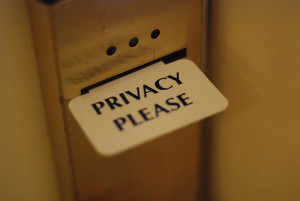I’ve only recently begun working on my paper, but it has proved to be much more interesting than I originally anticipated. Online voting is such a relevant and current issue, as it very well could be widely instituted in the near future, and it has such large implications. It is basically a distillation of the security vs. privacy debate, throwing in the issue of trust in government. My research has mostly consisted of Google Scholar and the Vanderbilt databases, which are far more helpful than any resources I used in high school. I was surprised that when I search a topic in google scholar, if Vanderbilt has access to it, a link appears on the side of the search results page, which has really streamlined the research process.
The most challenging part of the process thus far has been sifting through all of the information, as there is much more of it than I expected. I’m trying to read sources on all sides of the issue – both pro-online-voting and anti-online-voting – and it’s just a lot to take in. Also, a lot of the studies and information I’m finding is from the 2004 to 2008 period, which, while not completely outdated, also aren’t completely current in the world of technology. Since online voting still hasn’t become a widespread American practice, however, the research and arguments still seem to apply well to the current situation.
I’m currently in the drafting stage, pulling all of the information together. It’s a bit difficult to synthesize all the material, but the actual writing is always my favorite part of the process – figuring out which arrangements work, and what words feel right. My topic has definitely pulled me in, and I’m excited to continue exploring the nuances of the issue.


